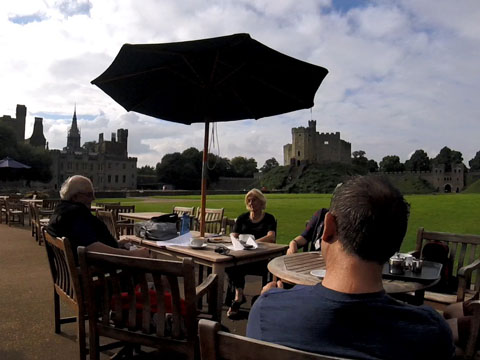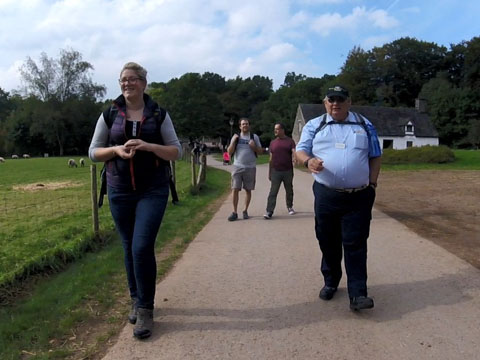Researchers at Cardiff University are getting people with incurable disorders out and about this year.
Active HD, a team of physiotherapists, doctors and professors, have set up weekly walking groups for people with Huntington’s disease in and around the city.
Huntington’s disease (or HD), is a rare genetic disorder that can leave patients with difficulty controlling their movements, as well as with behavioural and cognitive problems, making it difficult for them to get the exercise they need.
Dr Una Jones, 52, works with Active HD in helping patients get out and about. “We’ve been for walks around Bute park, we’ve visited Cardiff Castle, and St Fagan’s as well,” she explains, “We’re just trying to make each walk a little bit different and interesting.”

The group have visited local landmarks – and always stop for a coffee. (Photo courtesy Katy Hamana at Active HD)
The rare disease affects only between three and seven people out of every 100,000, and it can be difficult for sufferers to find someone to talk to.
“People have enjoyed the walks,” said Dr Jones, a Cardiff University senior lecturer, “They’ve loved seeing the different sights we’ve seen, and they’ve really enjoyed the social interaction with us and with other people on the walks.”
The team at Active HD worked together with Let’s Walk Cymru to set up the walks, after research showed that exercise can lead to significant improvements in motor function and fitness in people with Huntington’s disease.
According to Let’s Walk Cymru, only 30% of the population of Wales are achieving the recommended levels of weekly activity, and this can be even lower for those faced with the difficulties that a chronic illness can present.
With funding from The Welcome Trust and Cardiff University, Active HD hopes to carry on making a difference in the lives of those with incurable disease, and continue to carry out their important research.

